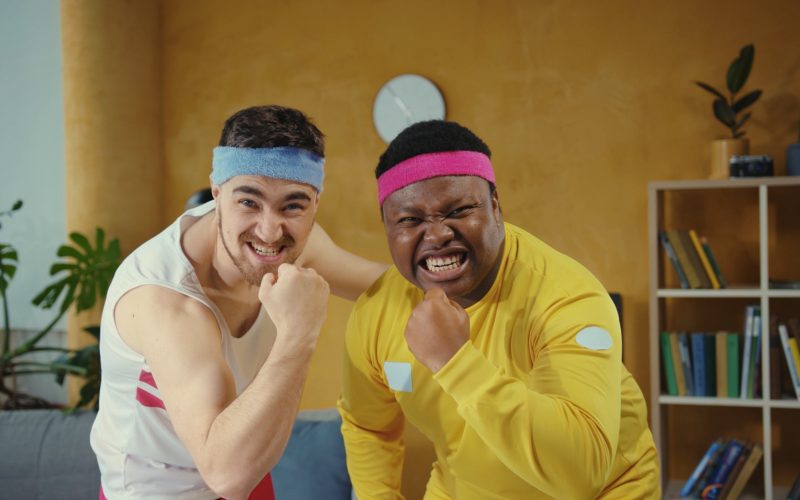The modern notion of the ideal man involves a lot of lean muscle mass — but why does our culture demand so much bulk from men whose lives for the most part no longer revolve around manual labor? Washington Post classical music critic Michael Andor Brodeur is a lifelong lifter, and he joins host Krys Boyd to discuss his examination of modern masculinity, why the gym took over after the Industrial Revolution, and what building muscle means for healthy — or unhealthy — identities. His book is “Swole: The Making of Men and the Meaning of Muscle.”
A music critic’s thoughts on the position of gay men in the patriarchy
By Sophia Anderson, Think Intern
Imagine the manliest man possible. He’s likely muscular, tall and handsome. Think’s guest for today might pose another question about this imaginary picture of masculinity: is he gay?
Decade-long bodybuilder and classical music critic Michael Andor Brodeur found that physical self-expression tends to be more nuanced for gay men than it is for straight men. His book, “Swole: the Making of Men and the Meaning of Muscle,” explores how exercise is not always as stereotypically masculine a hobby as it may appear.
“I think for gay men, you enter the world of muscle, sort of in this strange feedback loop,” he said. “On one hand, you want to protect yourself to repel a sort of attention, to broadcast to those that might threaten you, that you’re not to be messed with. On the other hand, you’re trying to attract attention. You’re trying to embody something that is to be looked at. You’re arguably luring the male gaze towards you.”
For Andor Brodeur, coming out as a gym rat was more of a shock to his friends and family than revealing his sexuality. His desire to bulk up felt almost like a betrayal of the other elements of his identity.
“I think for gay men, muscle represents a way to sort of enter the world of men, to be able to see themselves as men in a culture that says that masculinity is so tied up with being big and strong,” he said.
The false assumption that gay men automatically forfeit being manly allows for very narrow definitions of queerness and masculinity, and makes places like the gym feel unnecessarily exclusive.
The gym as a social space is something of an anomaly for men, as it allows them to support one another, fail in front of one another, and comment on each other’s bodies without judgement in a way they cannot do elsewhere.
Andor Brodeur works out for 90 minutes a day, often listening to classical music, and describes it as an intellectual experience. Even while performing the most rudimentary physical tasks – picking up objects and putting them down – he found himself thinking of Hercules and Sisyphus, and the classical forms of beauty found in ancient Greece and Rome.
Just as the raw human form was once seen as art, or at least more so than today, Andor Brodeur argues that the form essential to weightlifting is akin to the structures of poems or songs.
“But at least in poetry, or in songwriting or in art, it’s the ways that you transcend that form, the ways that you improve on that form or find or discover new ways of existing within that form — that’s what makes you an artist,” he said. “And I think in the gym, when you discover that form is merely a container for a larger experience, a larger investigation, as well as a way to keep yourself from getting injured, form becomes something you can pursue alongside fitness.”
Andor Brodeur deeply bonded with his father through fitness, when he had previously thought they had nothing in common. Learning about his father’s struggles with body image as a child, and ultimately watching his parents grow old and lose some of their physical capabilities made him question the significance of the human form.
“It really made me cognizant of how we understand the people that we love,” he said. “What are they? Are we just bodies? [Are] my mom and dad just the bodies that gave me my body? So just this inheritance of cells? Or are we the thing that the body contains?”





